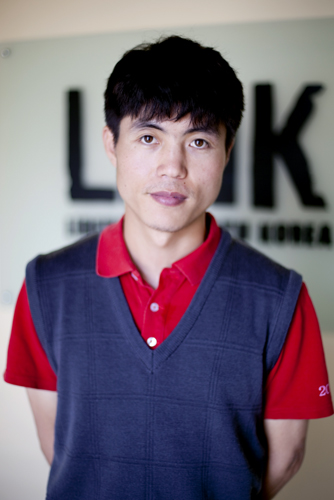Former North Korean prisoner to share experience at UCLA

courtesy of SHING DONG-HYUK
Born and raised in a North Korean concentration camp, Shin Dong-hyuk will recount his experiences in the labor camp today at the UCLA Law School building.
By Thomas Standifer
Feb. 23, 2010 11:57 p.m.
His mother was hanged in front of him, immediately after his brother was killed by firing squad ““ they had attempted to escape.
Born a political prisoner in North Korea, Shin Dong-hyuk will be speaking about his experience today at the UCLA School of Law.
The event is being held in collaboration with the UCLA student group Students Promoting Awareness About North Korea, the UCLA School of Law Program for International Human Rights, and the non-governmental organization Liberty in North Korea.
Prison camps are numerous in North Korea and house political opponents of the government, said Hannah Song, the executive director of Liberty in North Korea.
Song characterized these areas as essentially brutal work camps, and said sentences can range from a short “re-education” process and eventual release to a life imprisonment for committing the gravest political offenses.
Shin’s parents were in the second category. His father was sent to the camp on charges of aiding South Korea during the Korean War.
Shin spent the first 24 years of his life in a total-control prison camp, one meant specifically for the worst offenders.
Growing up, he had never heard of Kim Jong Il or Kim Il Sung, prominent North Korean leaders whose faces are worn on lapel badges by the county’s citizens, Song said.
This was because he was never meant to leave the camp, Song added.
Shin escaped the camp in January 2005 with another prisoner by running and jumping over an electrified barbed-wire fence. His friend was killed upon impact with the fence, but Shin made it over.
Since his January 2005 escape from the camp, Shin, who was unavailable for interview, has held speaking events worldwide to build awareness about what is happening in North Korea.
Shin has difficulty in sharing his story with an audience, in rehashing the old memories, Song said. He continues to speak because he feels it is his duty to share his story on behalf of those that cannot, Song added.
When Shin first came to the United States in 2008, he was taken to the Holocaust Memorial Museum in Washington D.C. by Liberty in North Korea, Song said. He was stunned by the images he saw, worried that North Korea would one day look the same.
The hope is that this event will expose students and community members to an issue they may not know much about, said Grace Lee, an organizer for the event and member of Students Promoting Awareness about North Korea.
Lee said she thinks people are at least somewhat aware that the regime in North Korea is brutal, but without knowing the extent of this brutality, they won’t be spurred into action.
A way to get North Korea to discontinue its human rights abuses is not clear, said David Kaye, the executive director of the UCLA School of Law Program for International Human Rights.
Kaye said the country has essentially isolated itself from the rest of the world; notwithstanding, he said the issue cannot be ignored.
“North Korea is probably one of the most, if not the most abusive countries across almost every area that you can think of,” Kaye said. “If you go down through the Universal Declaration of Human Rights, or the International Covenant on Civil and Political Rights, North Korea violates almost every provision.”


